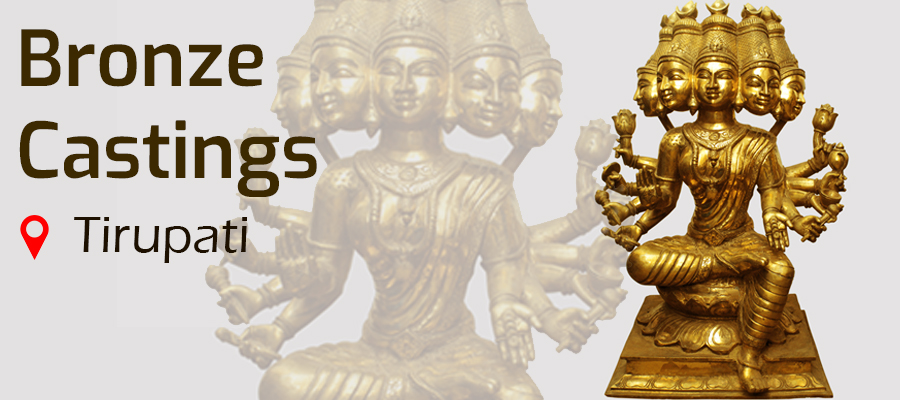
Metal craft is one of India’s ancient crafts, with a history dating back to thousands of years. Bronze is actually an alloy consisting of 85% copper followed by 5% each of lead, tin and zinc. Although there have been quite a few advances in making artefacts, this process is still heavily dependent on hours of skilled labor. In Andhra Pradesh, metal artisans involved in this tradition have mastered the technique of Bronze Casting from decades.
Bronze casting, also called as Lost-wax casting is a process by which a duplicate Bronze sculpture is created from an original sculpture. It is an elaborate process wherein depending on the sculpture size, few specialized saws are used, in the process of mold making.
The process of making these artefacts is an elaborate process where different alloys are mixed for the right preparation, followed by heating, waxing and molding. This is followed by giving the items a shining finish by further heating and painting.
Process of Bronze Casting
- Initially a flexible clay mold is created from an artist’s original clay form that captures every detail. A mold is further prepared and support is provided to the mold structure. Once this process is completed, original clay is eventually removed from the molds.
- In the next stage, molten wax is poured into clay mold, producing a fine replica of the original sculpture.
- Once this is cooled, the wax casting is further removed from this mold, which is further hand-finished to match the original sculpture employing heating tools.
- It takes many weeks to cure or harden this mold into a rock like substance so that it can withstand the high temperatures of poured bronze.
- This mold is finally placed in a kiln which generates extremely high temperatures. Now, cleaning of the mold is done to eliminate wax remains.
- The ceramic mold is completely filled with the molten bronze. Once the bronze shell is cooled, the ceramic mold is skillfully chiseled away, and this reveals the bronze sculpture within.
- Fine sand particles are used, driven by pressure for removing any pending traces of ceramic shells which adhere to the bronze.
- The sculpture is blasted with glass beads, creating an excellent surface finish, which completes the preparation for the patina.
The bronze sculpture is now treated using acid for bringing the chosen color, based on the artisan’s specifications. The type of acid and the extent of heat applied helps in creating different colors. Bronze is used widely for creating several idols of Hindu god and goddesses, Buddha etc., which are very attractive with excellent finish and these captivate the attention with an outstanding look.

